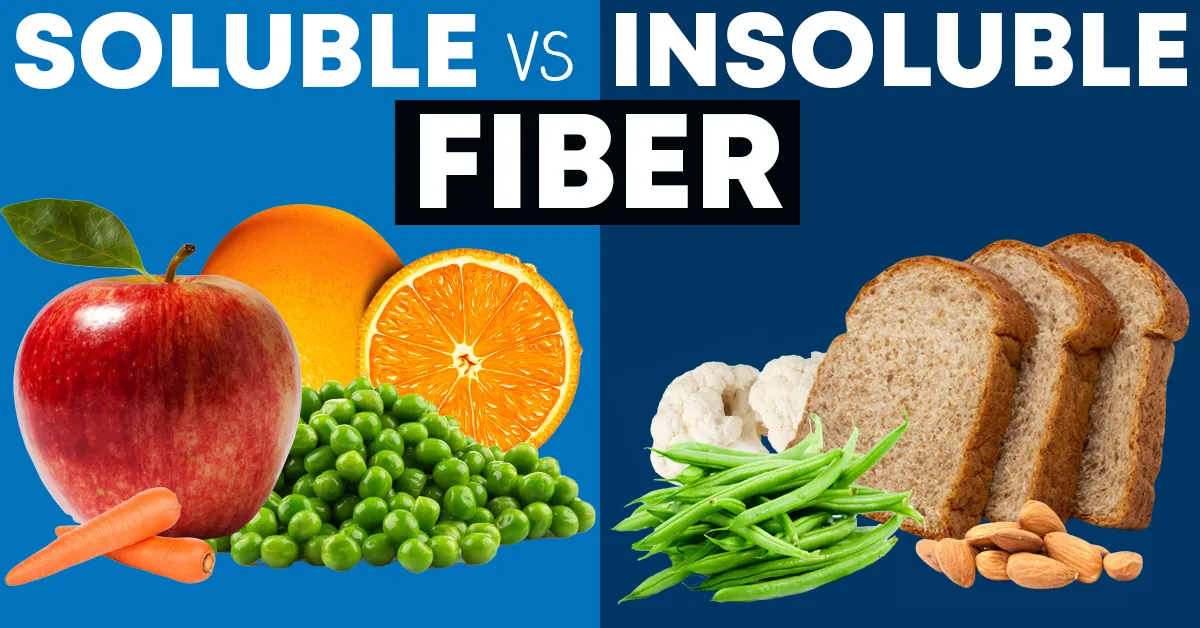A Guide to Gut Health: How and Why to Include More Fiber and Fermented Foods in Your Meals
A "F" is a gold star in the field of nutrition, yet it may be a dreaded grade at school. The unsung heroes of a healthy diet are two Fs in particular: fermented foods and fiber. These powerful nutrients have several advantages that can improve your general wellness in addition to being crucial for the health of your digestive system. So, how can you incorporate fermented foods and more fiber into your diet? And may they actually enhance your general health as well as your intestinal health?

A Secret Ecosystem: The Gut Microbiome
Imagine your stomach as a thriving metropolis of microorganisms. The population of bacteria, viruses, fungus, and other microscopic creatures that live in your colon (large intestine) is known as the gut microbiome. This microbiome is influenced by your diet, living conditions, and even the air you breathe. Given its extensive impact on your body's operations, some specialists even refer to it as a secret organ.
From maintaining the health of your gut lining to bolstering your immune system, the gut microbiome is essential. Additionally, it facilitates the body's absorption of nutrients from food that could otherwise be wasted. The gut-brain axis refers to a network of circuits that allow your stomach and brain to communicate continuously. This implies that, although the relationship is still being investigated, alterations in the microbiota may possibly have an effect on your mood and mental health.
A diet high in fiber and fermented foods and low in processed foods appears to be a good starting point for a balanced gut microbiota. More and more data points to the possibility that these foods have health advantages beyond digestion.
Fiber: Digestion's Unsung Hero (and Much More)
For good reason, fiber is frequently referred to as the best assistant in your digestive arsenal. Fiber helps your digestive system work properly by softening and boosting the volume of your stool, which makes it pass through your intestines more quickly. However, that is only the start.
Beyond digestion, fiber has many benefits. A diet high in fiber can reduce LDL (bad) cholesterol and help control body weight. Eating adequate fiber lowers your risk of heart disease, type 2 diabetes, and some types of cancer, according to numerous studies. And if that were not enough, it might even assist balance your microbiota, which would benefit mental health.
Fiber Types: Soluble vs. Insoluble
There are two primary forms of fiber: soluble and insoluble. Insoluble fiber encourages regular bowel motions and keeps the digestive tract working. Additionally, it prolongs feelings of fullness, which may aid with weight management. Conversely, soluble fiber is very effective at controlling blood sugar and lowering cholesterol.
Although each type has advantages, a new study indicates that the most significant factor in your diet is not necessarily the proportion of soluble to insoluble fiber, but rather the total amount of fiber. Therefore, instead of worrying about it, try to boost your overall consumption of fiber.
How Much Fiber Is Necessary?
It is generally advised to ingest 14 grams of fiber for every 1,000 calories. However, rather than worrying about exact figures, concentrate on increasing your intake of foods high in fiber. Aim for at least five servings of fruits, vegetables, legumes, nuts, seeds, and whole grains every day as a general rule.
If you have never eaten meals high in fiber before, start out slowly. To prevent unpleasant side effects like bloating or gas, start slowly and drink lots of water since your digestive system may need some time to adjust.
Foods High in Fiber to Try
The answer to the question of where to obtain fiber is straightforward: nature. Fiber-rich foods include whole grains like quinoa and oats, legumes like chickpeas and lentils, veggies like broccoli and carrots, and fruits like berries, apples, and pears.
Over-the-counter supplements may be an option if you are having trouble getting enough fiber from your diet, but you should use them as a last resort rather than as your main source. For the complete range of nutrients they offer, try to eat entire meals whenever you can.
Fermented Foods: Superfoods for Gut Health
A tasty method to help your gut microbiota is to eat fermented foods. Both probiotics—the living bacteria that help fill your stomach with good bacteria—and prebiotics—the nutritious fibers that support good bacteria—are found in these meals. Prebiotics and probiotics improve immune function, digestion, and other aspects of gut health by maintaining the balance in your gut.
Why Is Fermentation Important?
Lactic acid is produced during fermentation, a process where natural microorganisms break down the sugars and carbohydrates in food. In addition to preserving the food, this method produces strains of good bacteria that are known to promote gut health, such as Lactobacillus and Bifidobacterium.
Miso, kefir, sauerkraut, kimchi, and yogurt are examples of popular fermented foods. However, not all fermented meals are made equally. The probiotics in some products, such as wine or beer, may be destroyed during processing. Furthermore, the living cultures that give fermented foods their health advantages are frequently absent from canned or pasteurized goods.
Other nutrients, such as omega-3 fatty acids, B vitamins, and digestive enzymes, are abundant in fermented foods.
How Frequently Should Fermented Foods Be Consumed?
There is not a single solution that works for everyone. Your diet and specific health requirements will determine how much and how often you consume fermented foods. Although there is not a set daily allowance for probiotics or prebiotics, eating fermented foods on a regular basis can assist maintain gut health.
Begin with modest dosages and observe your body's reaction. A daily serving might help some people's digestive systems, while others might need to start out more slowly.
The Conclusion: A Well-Balanced Strategy for Gut Health
The gut is a complex, interrelated portion of your body that affects everything from your emotions to your immune system. It is more than just your digestive system. You are investing in your general health by increasing your intake of fiber and fermented foods, not only to help with digestion.
What's Your Reaction?




















